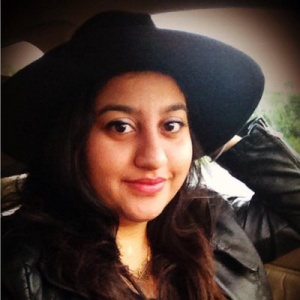By Roohi Sahajpal
I didn’t think walking into a high school as a 20-something would be an intimidating experience, but I was wrong. Standing in front of a classroom of 30 teenagers with all of the attention on me, I found myself nervous for the first time in years. This was in September 2014, my first time presenting as Youth Workshop Facilitator with Battered Women’s Support Services. Now, over a year and dozens of workshops later, the nerves have subsided and going to different schools and community groups in the Metro Vancouver is an exciting challenge to look forward to.
My experience volunteering as a Workshop Facilitator with the Youth Ending Violence program has been nothing but positive. Not only has it allowed me to build my confidence and public speaking skills, it’s also given me an opportunity to use education as a means to support others. I was looking for a way to give back to my community and find a meaningful way to discuss ideas surrounding violence against women, feminism and healthy relationships to students who might not have the chance in their day to day life. Youth, more than anyone, face the most peer pressure and are highly influenced by their surroundings, whether this be with good ideas or bad.
One of the most interesting things about being a Workshop Facilitator is the discussions that happen during and after your presentation. Coming from a media background, I’m always excited to hear how in tune youth are with how the media influences representations of women and healthy vs. unhealthy relationships. During every presentation, someone would bring up a pop culture reference or something that they noticed in a movie or music video they had seen that bothered them. Watching the interaction students would have with each other is really encouraging and it proved how presentations like ours can really spark a dialogue youth can have with each other around gender roles and the impact those roles have on youth dating relationships. The ability to think critically about how the media perpetuates toxic masculinity for boys and young men and objectifies girls and women helps get the discussion rolling on how to resist and create change.
Youth Ending Violence facilitators help create social change because of our ability to provide a safe environment for other youth to talk about dating violence and sexism in a way that most classes are not set up for. I think these conversations that youth can have in classrooms during the presentation allows them to feel comfortable with one another and it creates a safe space. Many of them probably don’t have these important conversations with their peers on a daily basis and through hearing what their friend thinks about topics like violence against girls and women and consent, it can lead them to changing their mind and encourage them to be empowered bystanders in their community and prevent gender violence.
My volunteer experience has also led to other cool opportunities, one of them being asked to facilitate a workshop on Media and Dating Violence with the Girls Action Foundation’s annual Zoom in On Girls meeting in Vancouver in April 2015. I’m really looking forward to continue volunteering with BWSS and I would encourage anyone who’s looking to give back to youth in their community to do the same
 Roohi Sahajpal is a Youth Ending Violence Facilitator at Battered Women’s Support Services
Roohi Sahajpal is a Youth Ending Violence Facilitator at Battered Women’s Support Services
Roohi has a background in journalism and non-profit work and is interested in ideas surrounding feminism, media, culture, and diversity. She graduated with a journalism degree from Ryerson University in 2012 and has been a volunteer with the YOUth Ending Violence program since 2014.






Hello Roohi, Rosa and Vicky, can we explore how I can have someone like Roohi come and speak to a group of at-risk Filipino youth on preventing gender violence?